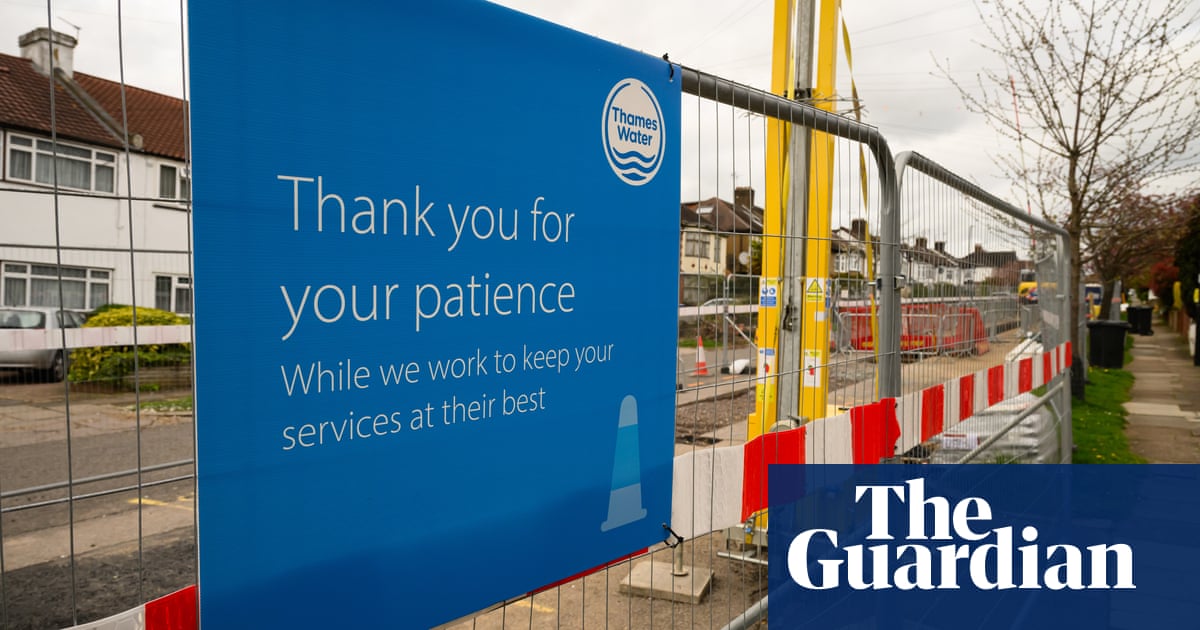Unresolved water complaints in England and Wales rise to near-decade high
The number of customer complaints that were unable to be resolved by water companies in England and Wales has risen by almost a third to the highest level in nearly a decade.
There was a 29% increase in 2023-24 in cases escalated to the Consumer Council for Water (CCW) by households that failed to achieve a resolution from their supplier, the watchdog said.
The jump has been fuelled by consumer discontent over sewage spills, billing mistakes and problems with water meters, with customers having exhausted their water supplier’s two-stage complaints process by the time they turned to the CCW.
Its annual report shows that customers made a total of 222,956 complaints directly to water companies in England and Wales. More than half of these (57%) related to issues with billing, including disputes around how much people were being charged, methods of payment and difficulties with affordability.
“We’re particularly concerned to see a significant rise in complaints from customers with water meters who are questioning the accuracy of their bill,” said Mike Keil, chief executive of CCW. “More companies are planning to roll out smart meters over the next few years, so they must listen and act on people’s concerns now or risk further damaging customer trust.”
CCW rated Thames Water and Yorkshire Water, which are both water and wastewater companies, as “poor” – its lowest category – for total complaints and the way complaints were handled.
Thames Water, which is in special measures and has had its credit rating downgraded to near junk status amid growing fears it could default, was the worst performer overall, with customers making more complaints directly to the company, as well as to CCW, than any other supplier.
Yorkshire Water also performed poorly, with the number of complaints coming to CCW about the company rising by 90%. CCW said there had been a 77% increase in the number of complaints it received about Cambridge Water, with most of these disputes relating to bills from metered households.
Wessex Water and Portsmouth Water were the only companies to receive a top score from CCW on both measures of performance.
Within the 7,977 cases received by CCW, complaints about environmental issues soared by 217% over the past 12 months, mainly relating to spills from storm overflows and wider pollution of rivers and seas. Issues relating to water meters rose by 30%, including concerns over how often they were being read and whether they were working properly.
A Thames Water spokesperson said: “We are committed to improving the experience of our customers and have been working closely alongside CCW to address these issues. CCW have recognised the collaborative approach we have taken and that the improvements we are making are showing promise. However, we recognise we have more to do.”
A Yorkshire Water spokesperson said: “We have worked closely with CCW to audit our complaints process.”
after newsletter promotion
A Water UK spokesperson said: “While any rise in customer complaints should be examined, not all complaints are necessarily evidence of poor service. A better measure is the number of complaints sent by the Consumer Council for Water to adjudication, which fell 37%, from 153 late last year to 57 for the equivalent period this year.”
CCW’s report comes amid growing public and political fury over companies polluting waterways with sewage spills as they continue to hand dividends to shareholders, and bonuses to executives – which Labour has promised to clamp down on.
Sewage spills into England’s rivers and seas more than doubled in 2023. According to the Environment Agency, there were 3.6m hours of spills last year – equal to about 400 years – compared with 1.75m hours in 2022.
This year, the water regulator for England and Wales, Ofwat, revealed £168m of proposed fines for three of England’s biggest water companies for failing to manage sewage spills, including a £104m penalty for Thames Water.
In July, Ofwat proposed that water companies should be allowed to increase bills by a third less than they had requested on average. Companies had put forward plans for increases averaging £144 over five years, although there were significant variations in price changes between suppliers.
Ofwat said it would consider all responses carefully before its final decision on water companies’ spending plans, expected by 19 December.




Post Comment